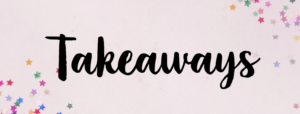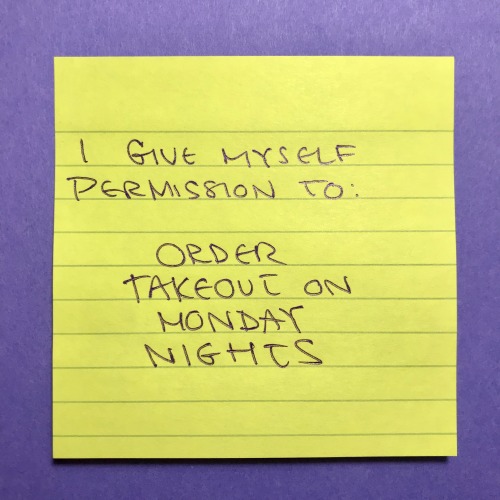I’m focusing my March posts on Conscious Input and Output, and Week 13 is all about Perspective.
I’ll be honest: I almost changed my topic halfway through last week to Stress, because I was under a lot of it! I’m going to offer a double whammy analysis of stress via the lens of perspective, which I hope will serve as an model for how you can tend to your perspective more.
Why Perspective?
I’ve been listening to Amy Cuddy’s book Presence: Bringing Your Boldest Self to Your Biggest Challenges.[1] Cuddy is the researcher behind the famous “Superman Pose” Ted talk, “Your body language may shape who you are” (which you should definitely check out if you haven’t watched/heard it!). Cuddy shares many brilliant findings and suggestions in her book, but one that stuck out for me was this:
We tend to exacerbate our failures and underscore our successes.
I am a huge perpetrator of this. In fact, I actually wrote this “fail-y” paragraph in my first draft of this week’s blog post:
My body was over it this week, and it was all due to stress. I rarely get sick, and I was staving off a cold. My period was nine days late. I wanted to cry at the drop of a hat. If I had condensed what my body was saying into a sentence it would have been: I am trying my damndest right now, but if I drop one ball it will all be for naught. I would have felt devastated if anyone on the outside thought I was doing a bad job; but of course, I didn’t give them that option. I struggle with an all or nothing mentality. Unfortunately, although I have been getting better at saying “I’m proud of myself,” I still tend to gauge my success on one of two options: do your work or fail.
That mentality—“Oh, you’re tired from working? Big whoop, deal with it.”—is deep rooted in me. I’d like to say I’m not proud of it, but a part of my working-class, I’ve-survived-this-far perspective is proud of my ability to push myself to do more, more, and then more. That isn’t something I can flip a switch on, but it is something I need to recognize and chip away at, because my body sometimes says “nope, no more” and I actually can’t be productive. Last week was one of those weeks, and I know that checking my perspective and learning new ways to approach productivity will actually help me succeed, heal, and tend better.
Choose Your Battles Wisely
My work doesn’t fit into a neat 9 to 5 schedule. Besides teaching and set hours office managing on site, I balance my own meetings, consulting (job 3), dissertation writing and research, doctor’s appointments, the gym, errands, travel, and any self care. Sometimes my schedule is balanced, but sometimes my energy and time are weighted more towards one side and another side suffers. When this happens, it feels like my whole day is toppling over like a Jenga tower.
I was bemoaning how exhausted I felt and how disappointed I was that I hadn’t done more work on my prospectus last week, and my Sweetie asked me to remember that if I have a container made to hold a dozen of eggs, that I literally will only be able to fit 12 eggs in the container. Any more than that will scrunch them up and break them.
I felt this hard last week. One day I had 14 tasks on my Todoist for the day. FOURTEEN tasks for ONE day!!!! I felt anxious sitting at my PT appointment in the AM, thinking “okay, if I leave here and do Task A for 30 minutes, I can do Task B for 90 minutes and then drive right to C and then D for three hours and then E…” until I had booked myself up for the next 12 hours, non-stop, back to back. I knew that I was setting myself up for failure because I was already feeling like an exhausted failure, and it wasn’t even 10AM. I rescheduled a handful of the non-priority tasks for a later day, being sure to leave some self-care tasks on my day’s list. It felt amazing to change my expectations for my productivity that day, and my mood immediately lightened. In fact, I ended up completing 9 tasks that day—4 more than I had originally cut my list down to!
Say No… to Yourself
I have a serious problem: even when no one asks me to, I offer a deadline for when I will finish a task. Here are two examples from last week:
- I was working on a report that my boss asked me to finish by the beginning of the following week. I emailed my boss and said “No problem! Working on it now and will have it done by tomorrow!”
- I was prepping for a big event for my other job and I had a few days left to complete a three-step task dealing with a checklist. I had come in to work on my day off to knock some tasks off my to do list, and I emailed my boss an update saying, “I’m just going to finish tasks X and Y and then head home!”
I had no reason to volunteer to complete either task by the arbitrary—and early—deadline I pulled out of my ass. But I still did it, even though I knew this is something that often leaves me exhausted, stressed, and only angry at myself. Big surprise that I ended up feeling exhausted, stressed, and only angry at myself as I was working until 9PM on the first task and staying an extra hour beyond my planned departure time for the second task.
Why the hell do I set arbitrary deadlines for myself for tasks that don’t need to be done so early? I only do it when I can say it to a boss, and I only do it for the jobs that I get paid salary hours for. Perhaps I’m trying to impress my boss? But I already receive positive feedback from my bosses about my work… Perhaps I’m trying to set a trap for myself, so I know I will finish the work ASAP so I can move on to work on my dissertation or go to the gym or check Instagram? I’m not quite sure, but I do know that it doesn’t serve me. (Gretchen Rubin, if you are reading, is this because I’m an Obliger?) Regardless of the cause, I definitely felt the stress of setting arbitrary deadlines this week, and I’m going to try to break myself out of the habit by making myself not create deadlines arbitrarily via email. I’ll report back on how it goes!

Write Yourself a Permission Slip
Brené Brown talks about writing herself a permission slip in her most recent book, Braving the Wilderness: The Quest for True Belonging and the Courage to Stand Alone and in her LifeClass conversation with Oprah. The point of these notes is to encourage yourself to make choices that you want to make without fear of vulnerability, looking dumb, or otherwise failing. I extend this to thinking about self care. Brown literally writes hers down, and you should do this, too. Here’s one I wrote for myself as I was revising this post:

Every Monday evening I grumble about spending time and energy cooking while I’m revising my blog post, and giving myself permission to just order takeout instead will A) give me a fresh air/walking break mid-revision, B) reward my hard work with something delicious, and C) will allow me to enter into next Monday’s blog revision without worrying about food plans.
Prime Yourself
Priming is a method for altering our perspectives before we complete a task. Amy Cuddy used this method to develop her Superman Pose exercise, and I adapted this takeaway from her discussions about having power to (versus power over).
Write down a few experiences that made you feel really proud or successful. Here are mine as pertains to my research:
- Published a peer-reviewed article.
- Was solicited to peer-review an article.
- Received a research fellowship.
Here are mine as pertains to my money:
- Paid off $4,000+ in credit card debt (so far!).
- Set up multiple savings accounts that I put money into every paycheck.
Now, just writing these down immensely changed my mood. I feel proud, relaxed, excited, and motivated to do more to accomplish my goals. I wrote the research list on a post-it and hung it above my desk so I will see it before I work, and I wrote the money one on a note that fits in my wallet before my debit card.
Learn About Stress
Kate Snowise has some brilliant tips about managing stress in Episodes 6 and especially 7 (“Stress: Recognizing When It is Too Much & How to Cope”) of her podcast Here To Thrive. She breaks down acute and chronic stress, and offers tips for managing acute stress symptoms, such as doing deep belly breaths where you breathe in calm and breathe out stress. It might sound simple, but it works!
Notes:
[1] I haven’t listened to it yet, but there is a free 1 hour 22 minute video of Amy Cuddy’s keynote speech with the same name as her book on the UC Davis Institute for Social Sciences YouTube page.
*Please note that the original version of this blog post was published here.
newsletter and free resources
Sign up below to access six free resources and my newsletter, tending.

